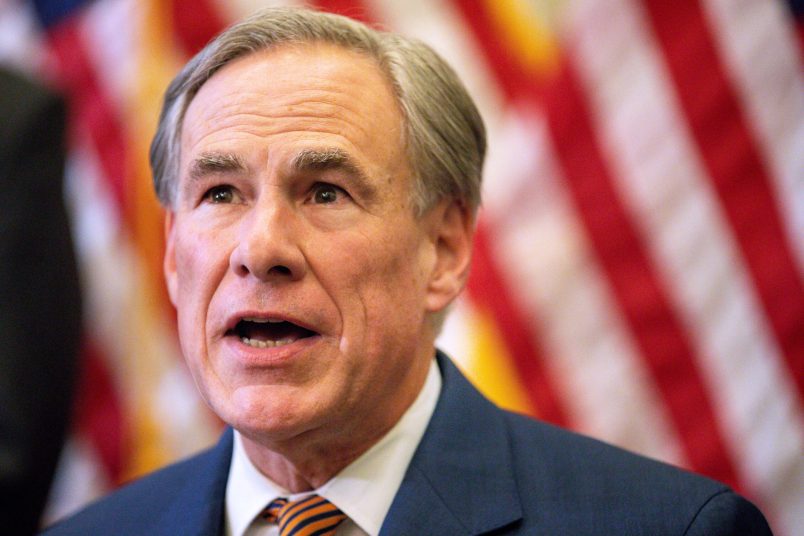Texas Gov. Greg Abbott (R) this week escalated his anti-trans rights crusade in the state by directing a state agency that oversees child abuse cases, among other things, to conduct “prompt and thorough” investigations into gender-affirming medical care for minors.
Abbott’s directive follows the release of state attorney general Ken Paxton’s (R) opinion on Monday, which characterized certain gender-affirming treatments for minors as a form of “child abuse” under state law. While in some states an attorney general opinion holds legal weight, in Texas the issuance of an opinion is generally seen as a “written interpretation of existing law.”
In a letter issued to the state’s Department of Family and Protective Services (DFPS) on Tuesday, Abbott regurgitated parts of Paxton’s opinion when he directed the state agency to investigate gender-affirming medical care for transgender youth. The Texas governor described some forms of gender-affirming care and surgeries as “abusive procedures.”
“Because the Texas Department of Family and Protective Services (DFPS) is responsible for protecting children from abuse, I hereby direct your agency to conduct a prompt and thorough investigation of any reported instances of these abusive procedures in the State of Texas,” Abbott wrote to DFPS.
Abbott noted in his letter that there are reporting requirements for all licensed professionals who come into contact with transgender children — which includes doctors, nurses and teachers — receiving certain types of gender-affirming care, like surgeries. Under Texas law, there are “criminal penalties for failure to report” on such care, Abbott wrote.
Additionally, Abbott called on DFPS as well as other state agencies to investigate parents who permit their transgender children to undergo gender-affirming procedures.
A spokesperson for the DFPS told the Dallas Morning News on Tuesday that it “will follow Texas law as explained (by Paxton’s opinion),” adding that it had no pending investigations.
Abbott’s latest salvo on transgender children follows a law he signed in October that prohibits transgender girls from playing with female sports teams in public schools.
Prior to Abbott’s signing of that law, the DFPS began recognizing certain gender-affirming surgeries as “child abuse” in August under pressure from the governor — the DFPS statement came after Abbott vowed to restrict gender-affirming care for transgender minors in Texas.
The moves by Abbott, Paxton and the DFPS come after the state legislature failed to pass a bill that would have made providing gender-affirming care to minors a felony; an executive branch workaround for a failed legislative push.
In the past year, Republican lawmakers have adopted a pro-parent approach to a litany of state laws and policies that have birthed out of the GOP’s current grievance issues. One example includes Abbott’s plans to amend the Texas Constitution with a Parent Bill of Rights if he wins re-election. Abbott argued that the bill will codify parents’ rights as the prime “decision-makers” when it comes to a child’s education and health care needs — that is when said education and health care decisions adhere to the Republican agenda, like on issues such as teaching about race in public classrooms or school masking requirements.
Last month, Abbott said that under the proposal, the state’s constitution would be amended to “make clear that parents are the primary decision makers in all matters involving their children,” which includes the expansion of parental access to school curriculums.
Texas is among several red states that have taken aim at access to gender-affirming treatments for transgender youths in the past year. Last April, Arkansas legislators passed the country’s first law banning gender-affirming care for minors, even after the state’s Republican Gov. Asa Hutchinson vetoed the bill. Earlier this month, South Dakota Gov. Kristi Noem (R) signed a bill that prohibits transgender girls and college-age women from participating in female sports. Nine other states, including Texas, have passed similar sports-related bans.



